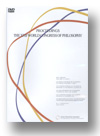|
21.
|
Proceedings of the XXII World Congress of Philosophy:
Volume >
40
Харабет Константин
Принцип дополнительности и его методологическое значение для криминологии
abstract |
view |
rights & permissions
| cited by
В условиях современного общества эпохи глобализации, характеризующегося признаками и одновременного требованиями культурного разнообразия и цивилизационного единства, особую опасность представляют такие угрозы безопасности как преступность, наркотизм, терроризм. Важной задачей криминологии как фундаментальной юридической науки, обеспечивающей научную разработку основ борьбы с преступностью, является организация научных исследований, позволяющих сформулировать адекватные криминальным угрозам стратегии борьбы ипрофилактики. В этой связи несомненной ценностью обладает осмысление юристами философских общенаучных принципов познания, в том числе – принципа дополнительности Нильса Бора. Его применение в криминологических исследованиях приводит к необходимости решения задачи расширения и гармонизации тезауруса, описывающего преступность и задачи комплексного изучения преступности и ее фоновых явлений, в т.ч. ихпротивоположных сторон, посредством создания единого научного языка.
|
|
|
22.
|
Proceedings of the XXII World Congress of Philosophy:
Volume >
40
Hee Kwon Chin
The Principle of Nature and the Natural Law of Confucianism
abstract |
view |
rights & permissions
| cited by
In 'Yeogi (禮記)', the Chinese scriptures of Confucianism, they recoded the solar calendar of modern viewpoints. According to the ancient document, the 24 solar terms was one of seasonal divisions in a year. The regularly change of the four seasons play an important part in the national economic project. For a national economy depended on agriculture in East Asia of ancient times, the administration to pay no regard to the change of the season was directly connected to the fall of the nation. And then the legislator must enact laws to reflect the change of the season. According to the 'Wolryeong (月令)' in 'Yeogi (禮記)', there is recoded national regulations to suit with the each twelve momth. The first month of spring is the prime of the year (February). The month shows sign of new livingthings. The ruler take order to protect the first breath of spring and ought to put a ban on the military training and labor mobilization. The reasons are to safeguard the new life and not to interrupt the preparation for farming. Confucian attach value to the nature within a human’s way of life. Therefore the norm of human do correlate closely with the principle of nature. The rule of Wuju (宇宙) was not a simple concept of the natural phenomenon and Cheon (天) was not the Almighty for himself. Cheon was just the existence of virtue and moral influence in the confidence of man. And Ji (地) was the Mother of all things. In this space man had to manage the world in sympathy with the process of cheonJi (天地); Cheonsi (天時), JIri (地利), Inhwa (人和).
|
|




